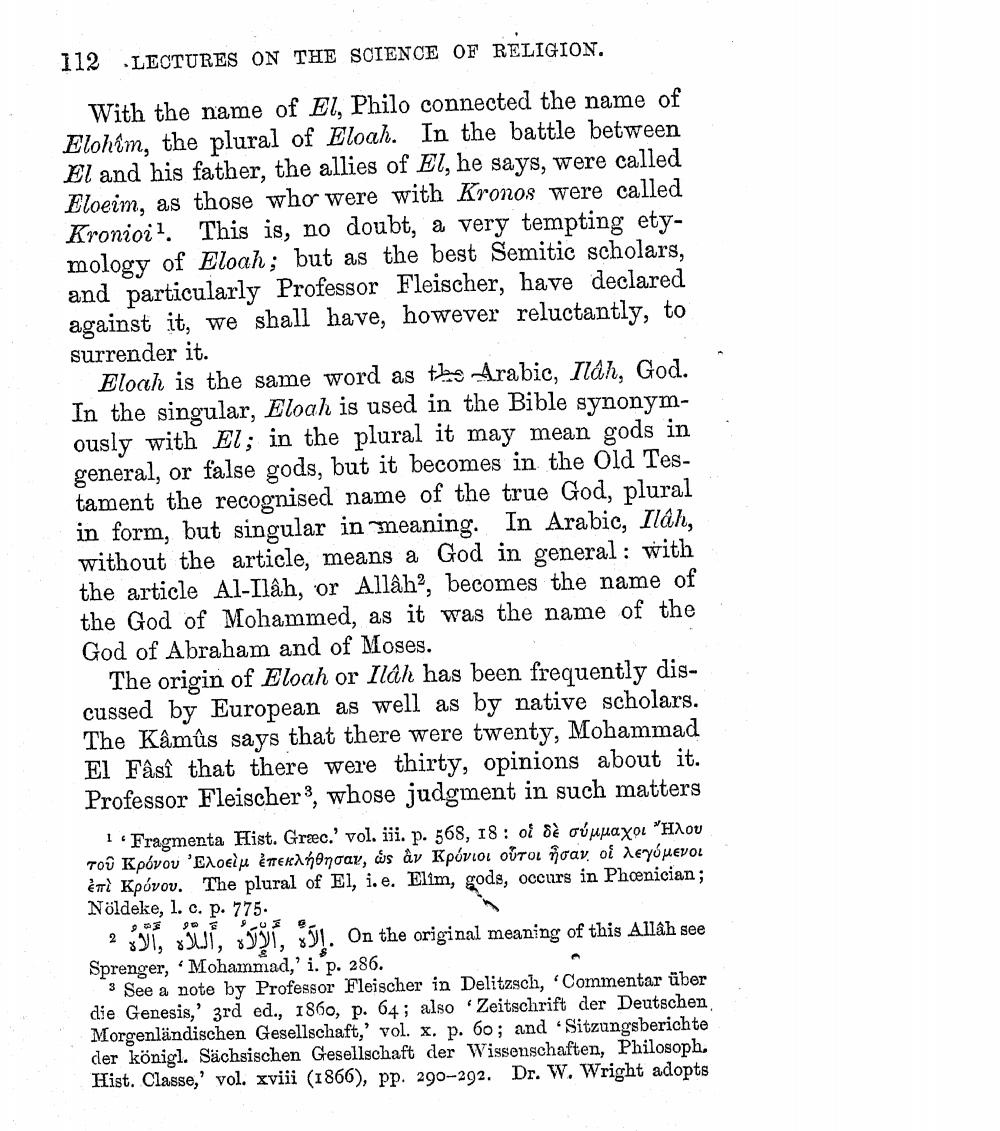________________
112 LECTURES ON THE SCIENCE OF RELIGION.
With the name of El, Philo connected the name of Elohim, the plural of Eloah. In the battle between El and his father, the allies of El, he says, were called Eloeim, as those who were with Kronos were called Kronioil. This is, no doubt, a very tempting etymology of Eloah; but as the best Semitic scholars, and particularly Professor Fleischer, have declared against it, we shall have, however reluctantly, to surrender it.
Eloah is the same word as the Arabic, Tlah, God. In the singular, Eloah is used in the Bible synonymously with El; in the plural it may mean gods in general, or false gods, but it becomes in the Old Testament the recognised name of the true God, plural in form, but singular in meaning. In Arabic, Ilah, without the article, means a God in general: with the article Al-Ilâh, or Allâh”, becomes the name of the God of Mohammed, as it was the name of the God of Abraham and of Moses.
The origin of Eloah or Ilâh has been frequently discussed by European as well as by native scholars. The Kâmûs says that there were twenty, Mohammad El Fâsî that there were thirty, opinions about it. Professor Fleischer, whose judgment in such matters
1.Fragmenta Hist. Græc.' vol. iji. p. 568, 18: of 8è cúpuaxou "Hlou του Κρόνου 'Ελoείμ επεκλήθησαν, ώς αν Κρόνιοι ούτοι ήσαν οι λεγόμενοι én Kpóvov. The plural of El, i.e. Elim, gods, occurs in Phoenician; Nöldeke, 1. c. p. 775.
29, xi, 591, 51. On the original meaning of this Allâh see Sprenger, Mohammad,' i. p. 286.
* See a note by Professor Fleischer in Delitzsch, Commentar über die Genesis,' 3rd ed., 1860, p. 64; also Zeitschrift der Deutschen Morgenländischen Gesellschaft,' vol. x. p. 60; and Sitzungsberichte der königl. Sächsischen Gesellschaft der Wissenschaften, Philosoph. Hist. Classe,' vol. xviii (1866), pp. 290-292. Dr. W. Wright adopts




